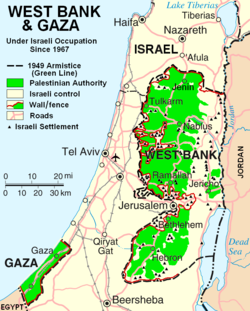Why Israel Was So Afraid: Legal Consequences Of Palestine’s UN-Status – Analysis
By JTW
By Burç Köstem
On August 2011 one of the most important scholars of public international law, Guy Goodwin-Gill of Oxford University unsuspectingly published a legal opinion commenting on the legal effects of a Palestinian statehood bid. While the issue was hotly debated between a handful of scholars and some members of the Palestinian diaspora, it was soon left behind among the many items of the busy agenda that occupies the Israeli-Palestinian conflict. Now as Palestine finally attains some level of statehood recognition at the UN with overwhelming support (138 for, 9 against, 41 abstaining) it is time to evaluate the legal consequences of this attainment and carefully read Goodwin-Gill’s warnings once again.
What Does Statehood Achieve?

Although UN Statehood bid is celebrated in the media as merely a symbolic victory that would give legitimacy to Palestine during the peace talks, it actually has legal consequences that could make significant impact on the ground. Beyond the diplomatic weight it gives the Palestinian leadership, a state recognized under international law can benefit from rights such as right to self-defense, sovereignty over its lands and membership to international organizations and treaties.
For example one of the most routinely used arguments by the Israeli side in terms of countering allegations of war crimes is that the Geneva Conventions, one of the founding documents of international humanitarian law do not apply in Gaza or the West Bank. This is because “the conventions refer to occupied state sovereign territories” . Although whether this argument held water among international lawyers is questionable, this statehood status is sure to completely invalidate such an argument.
Apart from this the statehood status also brings new obligations upon the Palestinian Authority, which should be a positive developments for the citizens of Palestine as John Quigley of Chicago University points out in his book . As a state within the UN, the Palestinian Authority will be able to sign treaties ensuring the human rights of its own citizens, as well as being subject to monitoring by organizations such as Human Rights Watch and Amnesty International that routinely monitor states.
Perhaps one of the most critical aspects is the fact that Palestine will be able to represent itself in organizations such as the UN Human Rights Committee and at the International Court of Justice as well as signing the Rome Treaty of the International Criminal Court. As Mahmoud Abbas himself had indicated in a New York Times article, the fact that Palestine wasn’t recognized as a state created significant obstacles in terms of pursuing charges of war crimes against Israeli officials in 2009 and in terms of challenging the legality of settlements inside the West Bank. Although it is far from certain whether the Palestinians will be able to access the International Criminal Court, it certainly paves the way to representation in increasing number of international organizations that could help document and monitor all sorts of human rights and humanitarian consequences of Israeli occupation both inside the West Bank and the Gaza Strip.
Worries of the Diaspora
Yet despite the cheering applauses of Palestine’s friends, a year ago the diaspora had expressed worries over whether the upgraded status of the Palestinian Authority would undermine the legitimacy and power of the Palestinian Liberation Organization in the international arena. It is argued by Goodwin-Gill that the PLO is the “sole legitimate representative of the Palestinian people” regardless of where they live.
The worry is that the issue of the Palestinian right of return, a fundamental Palestinian right under international law will be overlooked as the Palestinian Authority increasingly focuses on the worries of Palestinians living inside Palestine. The right of return refers to the right of Palestinians who were driven out of their lands by force during the events of 1947-1948 to return to their homes. The events of 1947-1948 also known as the Nakbah, the great catastrophe are a key element in the Palestinian narrative of the conflict.
Goodwin-Gill argues that “the interests of the Palestinian people are at risk of prejudice and fragmentation” and may end up losing “their ability to vocalize their views, to participate in matters of national governance, including the formation and political identity of the state, and to exercise the right of return”. If a Palestinian state is founded on the 1967 borders, than technically the people who were driven out during the Nakbah cannot return the argument goes.
Officials from the PLO such as Hanan Ashwari, had been quick to dispel such worries stating that “this step will not eliminate the role of the PLO “. Furthermore it was pointed out by international legal experts that the Palestinian National Charter, the constitution of the Palestinian state and the Palestinian declaration of independence both state that, “the Palestinian State is the state of all Palestinians regardless of where they live”. By virtue of this statement the Palestinian Authority could allow refugees to return.
Democratic Legitimacy
Yet perhaps the issue is one of the democratic legitimacy of the Palestinian Authority, rather than its status under international law. It should not be forgotten that the Fatah leadership that spearheaded the statehood bid has cancelled elections to the Palestinian Legislative Council since 2007. Although international law doesn’t concern itself with democratic elections while evaluating the status of statehood, these are nevertheless legitimate concerns that should be voiced both by the Palestinians and the diaspora. Achieving statehood status is a very important gain. Yet now that the Palestinian state has received international recognition it should use this tool to unite all Palestinians, whether in West Bank, Gaza, in Israel, in the United States, in Jordan and in refugee camps all around the Arab world.
